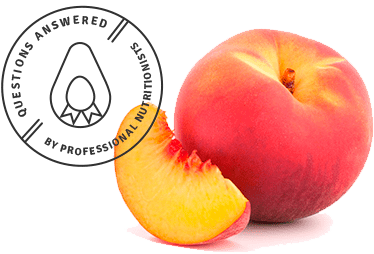Tina
diet and ibs
I would like to lose weight but have recently been diagnosed with IBS. what is the best diet that will allow me to lose weight but also keep my symptoms at bay.

Elizabeth Cooper
1
votes(Highest rated answer)
Hi Tina, thanks for your question. IBS is a term for a digestive disorder with no known cause; however, there are several different causes including stress, certain foods, impaired digestion of foods, or an imbalance of bacteria in either the large or small intestine. Without knowing what the cause is it is difficult to be specific about the diet that is best for you. You may find that reducing grains helps both in terms of IBS symptoms and weight loss; however, this can sometimes make people feel worse and cause constipation, particularly if constipation is already a problem. I recommend you do a food diary and try to determine whether any particular foods make your symptoms worse and if they do then try doing an exclusion of them and see if this helps in terms of IBS and weight, as sometimes foods that cause digestive symptoms can also cause fluid retention and when you remove them you lose the fluid. As a general guide though, removing refined carbohydrates, sugar, harmful fats found in cakes, biscuits, crisps and other processed food, and keeping alcohol and caffeine to a minimum should help you to lose weight and will also be good for gut health. Having beneficial fats e.g. avocado, olive oil, oily fish, nuts and seeds (although these last two can sometimes irritate the gut further as they can be hard to digest) is also good for the gut and will help weight loss as fat is more likely to be used for energy than stored, unlike refined carbohydrates and sugar which if not used for energy will be stored as fat. I hope this helps!

Sharon Scott
0
votes
Hi Tina,
Thanks for your question.
I agree with Elizabeth's advice and further advice would depend on gathering further information regarding symptoms experienced due to IBS (i.e. constipation or diarrhoea, or alternating).
Linseeds are thought to offer support and may help with healthy bowel movements in both constipation and loose bowel movements. It is important to drink lots of water and start with a small amount such as 1 teaspoon increasing gradually to approx. 1 tablespoon. Opting for a mix of whole seeds and milled seeds may offer the best support as whole linseeds are helpful in supporting formation of a healthy stool whereas milled allow the absorption of nutrients more easily from the seeds including omega 3 fatty acids.
Some IBS sufferers have found support following the low FODMAP diet (Fermentable, oligo, di, mono-saccharides and polyols). These are a group of short-chain carbohydrates that are not very well absorbed in the gut. They can be easily fermented causing fluid to enter the large bowel, leading to gas, bloating and diarrhoea. Reducing the amount of these sugars may improve IBS symptoms for some people.
Including probiotics in the diet to support the health of the gut may also prove beneficial with some studies specifically linking the strain bifidobacterium infantis to improvement in symptoms.
It is also important to build relaxation into your weekly routine to limit stress as many people report symptoms to be increased during times of increased stress.
Best Wishes
Sharon
Thanks for your question.
I agree with Elizabeth's advice and further advice would depend on gathering further information regarding symptoms experienced due to IBS (i.e. constipation or diarrhoea, or alternating).
Linseeds are thought to offer support and may help with healthy bowel movements in both constipation and loose bowel movements. It is important to drink lots of water and start with a small amount such as 1 teaspoon increasing gradually to approx. 1 tablespoon. Opting for a mix of whole seeds and milled seeds may offer the best support as whole linseeds are helpful in supporting formation of a healthy stool whereas milled allow the absorption of nutrients more easily from the seeds including omega 3 fatty acids.
Some IBS sufferers have found support following the low FODMAP diet (Fermentable, oligo, di, mono-saccharides and polyols). These are a group of short-chain carbohydrates that are not very well absorbed in the gut. They can be easily fermented causing fluid to enter the large bowel, leading to gas, bloating and diarrhoea. Reducing the amount of these sugars may improve IBS symptoms for some people.
Including probiotics in the diet to support the health of the gut may also prove beneficial with some studies specifically linking the strain bifidobacterium infantis to improvement in symptoms.
It is also important to build relaxation into your weekly routine to limit stress as many people report symptoms to be increased during times of increased stress.
Best Wishes
Sharon




